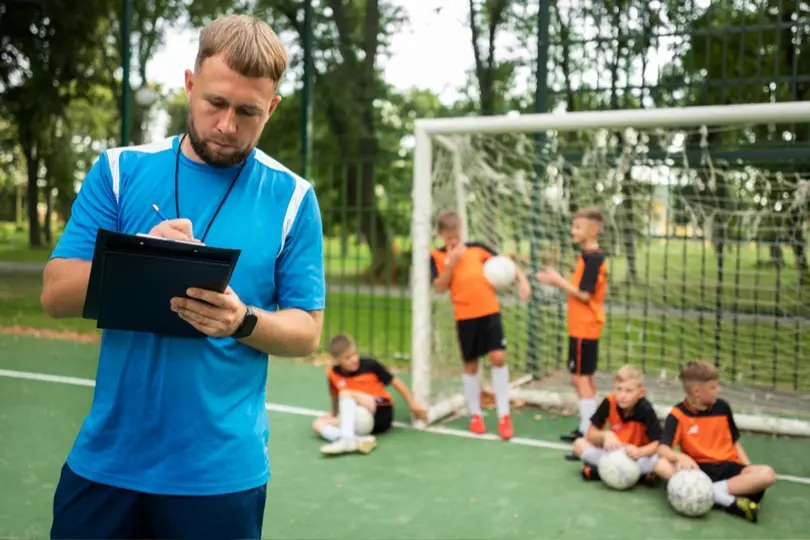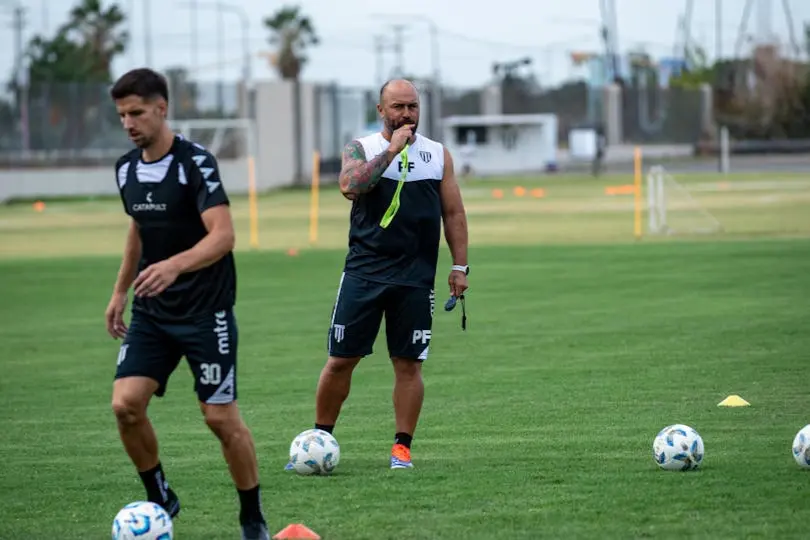
A well-planned preseason gives every soccer program a steady base that keeps training organized, players healthy, and progress easy to see. Strong systems reduce confusion, protect energy, and save time when schedules grow busy and demands increase across school and travel. Clear goals, safe routines, and honest standards guide daily work and build trust that lasts through tough weeks and hard matches. Calm planning turns moving parts into steps that support growth and reliable performance. Results follow preparation.
Set Clear Program Goals
Clear program goals guide every decision, shape loads, and keep attention on the skills that matter most throughout the season. Staff record targets for fitness, technique, and teamwork, set fair timelines, and choose checks that measure progress in numbers and notes. Defined roles and standards for effort, punctuality, and conduct keep sessions focused, meetings short, and players ready for the workday. Short goals and long goals support each other, because focus builds momentum while season milestones keep direction firm under pressure. Staff track minutes, distances, and key actions, adjust sessions to protect recovery, and raise quality without adding risk. Progress boards display results, recognize steady effort, and mark next steps, while consequences address missed standards quickly, protect trust, and keep the group aligned.
Build a Safe Fitness Base
A safe fitness base supports play by growing stamina, speed control, and strength that hold up across changing fields. Coaches plan gradual increases, balance running with movement skills, and include mobility blocks that protect joints and posture. Warmups raise temperature and focus, cooldowns reduce stiffness, and recovery days share space with heavy work to prevent overload and support gains for the full roster. Hydration plans, sleep targets, and food guidance strengthen bodies and minds, because rested athletes move better, decide faster, and handle tough weeks with fewer setbacks. Staff log soreness and minor pains, adjust minutes in real time, and coordinate with caregivers when care needs rise. Fitness testing at the start and midseason confirms training impact, keeps risk low, and directs support where gaps remain.
Teach Simple, Strong Tactics

Simple, strong tactics help players read the game quickly and act with the same plan under stress. Coaches set a base shape for defense and attack, define pressing and passing cues, and teach set pieces that use safe spacing and runs. Short talks keep ideas clear, while quick walk-throughs link words to movement so players learn positions, triggers, and support options. Clarity matters. Role clarity builds confidence, because each position knows first jobs, second jobs, and rules for switching based on space and pressure. Staff highlight patterns, repeat key phrases, and connect tactics to team goals, which keeps choices simple when matches speed up. Film clips and chalkboards support learning, while updates handle new opponents without rewriting the system week to week.
Organize Safe, Efficient Practices
Safe, efficient practices protect health, raise skills, and save energy for the actions that create gains. Session plans list goals, time blocks, and equipment; arrange fields to prevent collisions; and set ball counts that keep touches high and waiting low. Staff demonstrate correct form, fix errors early, and rotate groups, while weather checks and field walks handle heat, rain, and hazards before players arrive. Balanced intensity keeps minds sharp and legs fresh, so tough blocks alternate with technique and decision work, and breaks follow a steady rhythm. Staff set water points, track attendance and heart rates, and close with short debriefs that collect feedback for the plan. Equipment care lists assign pumps, cones, and bibs to helpers, which keeps gear ready and prevents waste that strains budgets.
Build Culture and Communication
Strong culture holds programs together when days get crowded and results vary, because shared values guide choices when stress climbs. Leaders model calm words, a fair tone, and steady effort, and they apply standards the same way for every player. Schedules, rules, and travel plans sit in one place, updates arrive early, and decisions state reasons in simple terms that families and players trust fully. Support systems help athletes manage school, health, and home needs that touch team life, so staff share checklists for bags, homework blocks, and rides. Mental skills training teaches focus, breath control, and reset routines that lower nerves and improve attention in practice and matches. Notes highlight effort and learning over outcomes, while celebrating achievements with custom medals that recognize steady progress and reinforce team values.
Conclusion
A strong start grows from clear goals, safe fitness, simple tactics, efficient practices, and a steady culture that keeps programs healthy and stable. Careful planning sets honest limits, tracks results in plain language, and adjusts workloads before small problems become larger setbacks. Reliable routines protect trust and free energy for hard work, while fair standards guide choices that last beyond one match or one week. Consistent systems turn preseason effort into progress that supports confident play and balanced development.
Photo Credit:
Photo 1, Credit to Freepik || Photo 2, Credit to Pexels (CC0 1.0)
Resources:
https://www.soccercoachweekly.net/coaching-advice/the-five-pillars-of-an-effective-pre-season
https://traceup.com/academy/how-soccer-coaches-can-prioritize-player-development
https://planet.training/soccer-season-plan
https://www.totalsoccer.us/3-skills-to-work-on-before-the-start-of-soccer-season/
https://www.veo.co/article/12-essential-football-skills-every-coach-should-teach
https://keystonesports.com/how-to-come-best-prepared-for-college-soccer-season/




